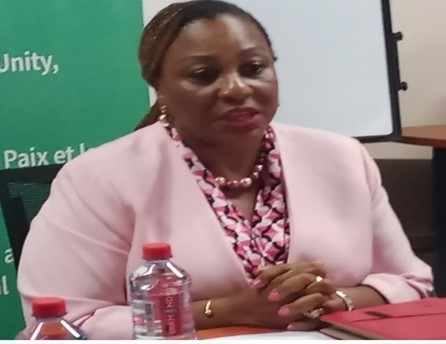On October 15, 2024, the Economic Community of West African States (ECOWAS) convened a significant dialogue in Monrovia, Liberia, focusing on the specific challenges faced by women engaged in cross-border trade. This initiative aimed to highlight and address the various obstacles these women confront, particularly the illegal and excessive taxes imposed by border security personnel. ECOWAS Ambassador to Liberia, Josephine Nkrumah, emphasized the importance of understanding these challenges and reiterated the organization’s commitment to streamlining trade processes within the West African region. She reiterated that the organization has long championed a protocol that promotes free trade among member states, urging the need for collective efforts to mitigate unlawful financial burdens on traders.
During the discussions, Ambassador Nkrumah provided an overview of some of the protocols that ECOWAS member states have adopted to facilitate unimpeded trade. She acknowledged the significant contributions of women in the regional economy and the vital role they play in cross-border commerce. One notable initiative discussed was the installation of large signboards at border crossings, which would clearly outline goods that should be exempt from taxation. This initiative is aimed not only at informing traders but also at reducing the instances of corrupt practices that hinder trade efficiency. Ambassador Nkrumah pledged to carry the insights and experiences shared by the women to the ECOWAS Commission, with the goal of ameliorating their trading conditions.
The dialogue served as a platform for women traders to voice their grievances. Key issues raised included the burdensome illegal taxes levied by border guards, a lack of adequate housing and warehouse facilities at border points, and the exorbitant transportation costs that further diminish their profit margins. Participants expressed frustration over how these challenges not only impede their business activities but also negatively impact the final consumers of goods, as heightened costs typically result in increased retail prices. Ambassador Nkrumah acknowledged these concerns and expressed her unwavering support for the women’s plight, indicating an openness to address these issues systematically.
Additionally, there was an emphasis on the need for women to organize themselves more effectively to enhance their bargaining power and ensure that their concerns are adequately represented. At the conclusion of the dialogue, attendees agreed on the necessity to form cohesive groups that would provide a stronger voice when addressing matters with ECOWAS and other relevant authorities. There was a collective resolve among participants to engage in continuous dialogue and advocacy to pave the way for better recognition of their contributions to cross-border trade.
In conjunction with the discussions, it was highlighted that the overarching aim of ECOWAS is to unify the member states and create a conducive environment for commerce. The organization hopes to ease national borders’ stressors and eliminate the unauthorized fees that reduce traders’ profits and economic viability. The ambassador underscored the dangers these illicit practices pose, ultimately compromising the welfare of ordinary citizens who rely on these goods. The dialogue encapsulates ECOWAS’s commitment to addressing the socio-economic issues affecting its constituents, particularly women involved in trade.
As a result of the productive meeting, ECOWAS is set to take actionable steps based on the feedback and insights shared by the women traders. Future initiatives will likely include educational tours for security officers at border points, promoting awareness about the importance of seamless cross-border trade and the detrimental effects of extortion. This focused effort signifies a pivotal shift towards recognizing and empowering women in the economic sector, as their active participation is seen as crucial for regional development and sustainability. The continued partnership between ECOWAS and women in trade is anticipated to foster a stronger economic landscape within the region, promoting fairer trading practices that benefit all stakeholders involved.














